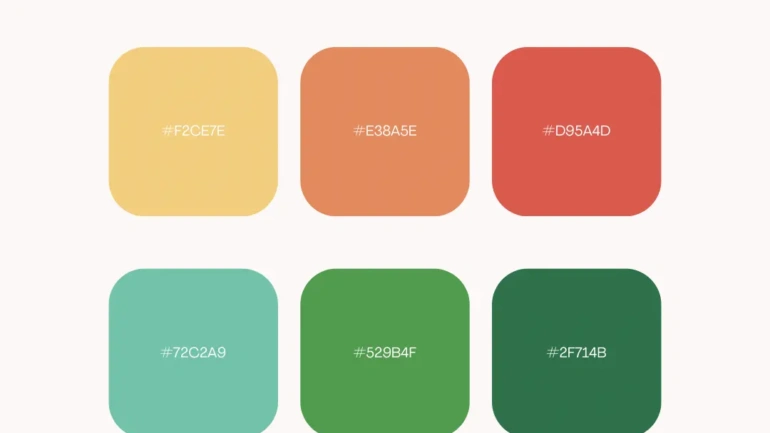What the Heck is “Chingatumaga”? Let’s Break It Down (With Some Laughs, Too)
Alright, alright, let’s talk about something that’s been blowing up all over the internet lately—”chingatumaga.” First off, if you’re here hoping for a scholarly translation, you might want to close the tab and head over to a dictionary. But if you’re into a little bit of humor, a dash of irreverence, and some spicy culture talk, stick around. We’re diving deep into this infamous phrase that’s got everyone googling, “What the heck does ‘chingatumaga’ even mean?”
To give you a hint, this is the kind of phrase that might make your grandma faint if she ever heard it in a sentence. It’s definitely not one you’d toss around in polite company, unless you’re cool with some serious side-eye. And while you might’ve heard it from that one friend who’s trying to sound “hip” or from the back of a meme, you’re probably wondering, “Is this just a bad word? Or is there some hidden depth to it?”
Let’s decode it, shall we?
A Quick Crash Course: What Does “Chingatumaga” Even Mean?
Alright, here’s the lowdown: “Chingatumaga” is, in essence, a colorful expression in Spanish, predominantly used in Mexico and some other Latin American countries. And when I say colorful, I mean it in the most unfiltered, raw sense of the word.
“Chinga” comes from the verb “chingar,” which is a verb that—depending on how it’s used—can range from “to screw up” to something far more vulgar, like “to f*** up.” The exact meaning can shift depending on the context. So, when you say “chingatumaga,” you’re essentially telling someone, “F*** your mother” in the most unapologetic, in-your-face manner. Yeah, not the most polite way to express your frustrations, but it’s certainly effective in making a statement.
Now, here’s where things get a little more interesting. The second part, “maga,” is likely a variation of “madre,” which means “mother” in Spanish. But “maga” is kind of like the street version, you know? It’s not like you’re sitting down for a formal dinner, discussing the weather with this phrase.
So, in the simplest terms, “chingatumaga” is a very strong, very vulgar insult aimed at someone’s mother. A good rule of thumb? Probably best not to use this one when you’re meeting your partner’s parents for the first time. But if you’re in the mood to throw some unrestrained shade, then this is your golden ticket.
But Wait, There’s More: “Pendejo” and Why It’s Here to Stay
Alright, I know what you’re thinking: “Isn’t there some other word that’s attached to this that makes it sound even worse?” Enter “pendejo.” If “chingatumaga” wasn’t enough of a punch to the gut, toss a “pendejo” on top, and now you’re really asking for it.
“Pendejo” is one of those classic Spanish insults that never gets old. It literally translates to “fool” or “idiot” in English, but don’t let the simplicity fool you. When used right, it’s a pretty effective way of saying, “You’re an absolute idiot, and I’m not even mad about it, I’m just disappointed.” Imagine it with a little sass, and now you’re in full pendejo territory.
So when you say “chingatumaga pendejo,” you’re not just insulting someone’s mom—you’re also calling them an idiot. It’s like combining your anger at a person’s family with your utter lack of respect for their intelligence. A two-for-one deal, really. And somehow, it works.
You might hear this phrase being tossed around in heated arguments or when someone’s just lost their cool. It’s like the ultimate exclamation point to a sentence that’s already full of frustration. You know things are getting real when this phrase makes an appearance.
A Little Context: When (and Where) Can You Drop This Phrase?
Before you go around yelling “chingatumaga pendejo” at the next person who cuts you in line at the coffee shop, let me give you a quick warning: context is everything.
If you’re hanging out with friends who understand the humor (or just the general vibe of over-the-top insults), you might get away with saying this in a lighthearted way. But if you’re in the presence of people who don’t share your sense of humor—or worse, they don’t speak Spanish—you could easily find yourself in some very awkward situations. And if you’re ever planning on visiting a country like Mexico, where this phrase might be more commonly used, you’ll definitely want to gauge the situation before breaking it out.
The last thing you want is to accidentally offend someone who’s not in the mood for your sense of humor. Trust me, I’ve seen it happen. “Chingatumaga” isn’t the kind of phrase you just throw around at the dinner table unless you’re ready for the consequences.
But there’s something kind of empowering about this phrase, too. It’s got this fierce, unapologetic vibe to it. You’re not just swearing—you’re making a statement. You’re saying, “I’m done with you. This is my frustration, and it’s out in the open now.” There’s a weird form of catharsis in those words, even if they’re totally inappropriate.
So, Is “Chingatumaga” Just a Swear Word or Something Deeper?
Here’s the thing: like a lot of slang terms, “chingatumaga” can mean a lot more depending on who’s saying it and in what context. Is it just a swear word? Well, yes—but also no. It’s a piece of cultural expression. It’s a way to capture a very specific kind of emotion: raw frustration and, often, a sense of powerlessness. And sometimes, letting that frustration out with an explosive phrase like this is just what you need to feel heard.
But at the same time, there’s a touch of humor to it. Sure, the phrase is incredibly strong, but it’s also exaggerated. And in the world of online culture, everything gets a little bigger, louder, and funnier. You’re not just saying something rude; you’re delivering it with gusto, with flair, and with the knowledge that, somewhere in the universe, there’s someone laughing because they totally understand the vibe.
The bottom line? “Chingatumaga” is not just a random string of words—it’s a cultural artifact that’s been passed down through generations. It’s a way to express something powerful in a way that feels almost theatrical. It’s a little dramatic, a little irreverent, and yes, definitely not for the faint of heart.
Why Does “Chingatumaga” Keep Popping Up in 2024?
So here’s where it gets even more interesting. In 2024, this phrase is making its rounds once again. It’s popping up on social media, memes, and even political commentary. Why? Because it taps into something deep and universal—our need to let off steam and express anger, often in the most comical, dramatic way possible.
In a time when everyone’s got an opinion and feels the need to broadcast it—especially on platforms like Twitter or TikTok—phrases like “chingatumaga” get new life. They evolve from just being an insult to becoming part of the internet’s vernacular. Whether it’s in memes, political rants, or just casual banter between friends, “chingatumaga” becomes something larger than just words. It becomes a statement.
It’s funny how something as simple as a swear word can transcend its origins and find a new home in pop culture. In 2024, it’s not just about the insult—it’s about the sheer, unrestrained emotion behind it.
Wrapping It Up: Should You Use “Chingatumaga”?
Look, if you want to get your point across in the most dramatic, in-your-face way possible, “chingatumaga” might be your go-to phrase. But just be careful with it. It’s not something to throw around lightly. It’s not just a swear—it’s an expression, a mini culture lesson wrapped in a salty, spicy little bundle.
So, next time you feel that rage bubbling up inside you, and you’re tempted to toss out a “chingatumaga pendejo,” just remember: there’s power in words. Use them wisely—or at least with a little humor to soften the blow.
Because, at the end of the day, language is all about expressing ourselves. And sometimes, you need to scream “chingatumaga” into the void—just for the drama of it.


